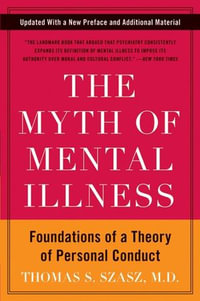Booktopia has been placed into Voluntary Administration. Orders have been temporarily suspended, whilst the process for the recapitalisation of Booktopia and/or sale of its business is completed, following which services may be re-established. All enquiries from creditors, including customers with outstanding gift cards and orders and placed prior to 3 July 2024, please visit https://www.mcgrathnicol.com/creditors/booktopia-group/

The Mental Mechanisms of Patient Adherence to Long-Term Therapies
Mind and Care
By: Gérard Reach
eBook | 17 February 2016
At a Glance
eBook
RRP $84.99
$76.99
Instant Digital Delivery to your Booktopia Reader App
ISBN: 9783319122656
ISBN-10: 3319122657
Series: Philosophy and Medicine : Book 118
Published: 17th February 2016
Format: ePUB
Language: English
Audience: General Adult
Publisher: Springer International Publishing
Country of Publication: US
Volume Number: 118
























